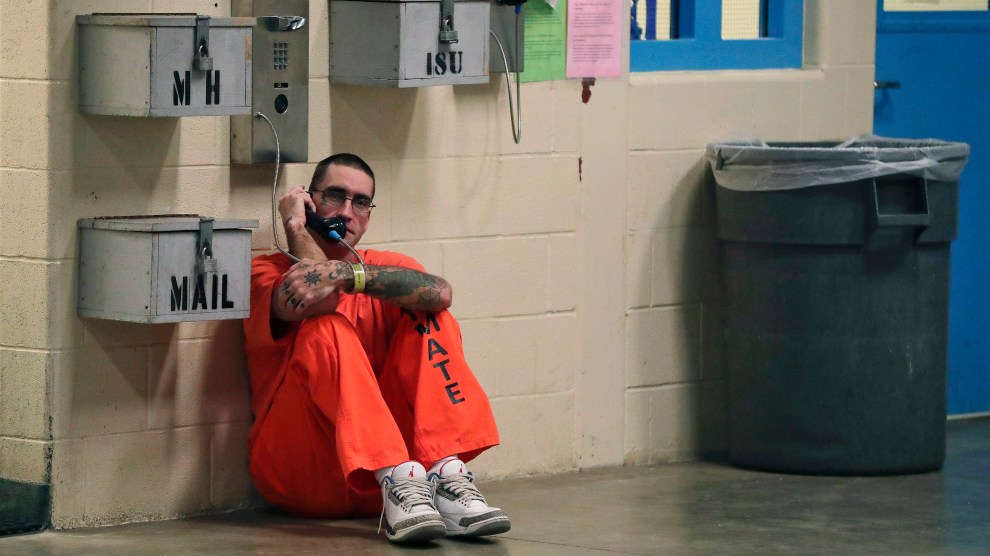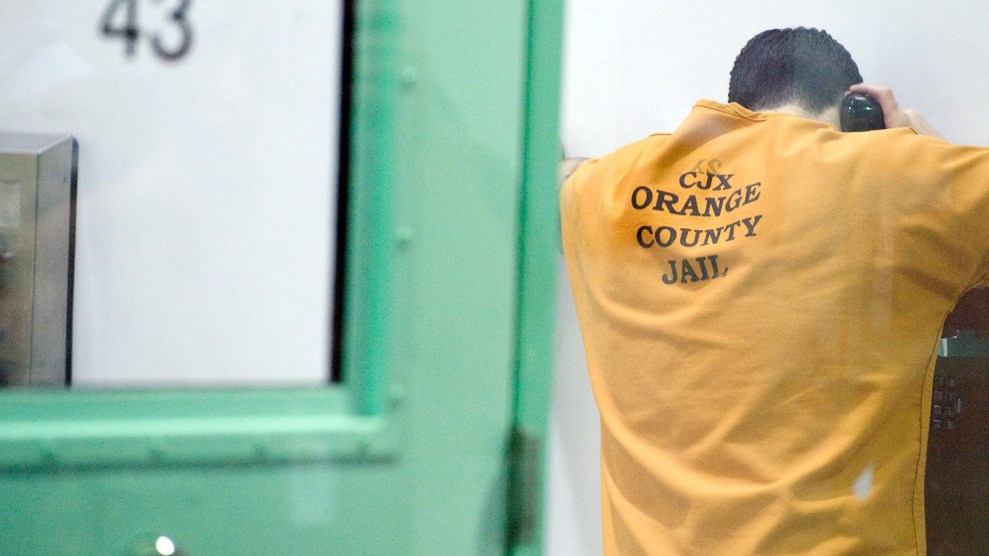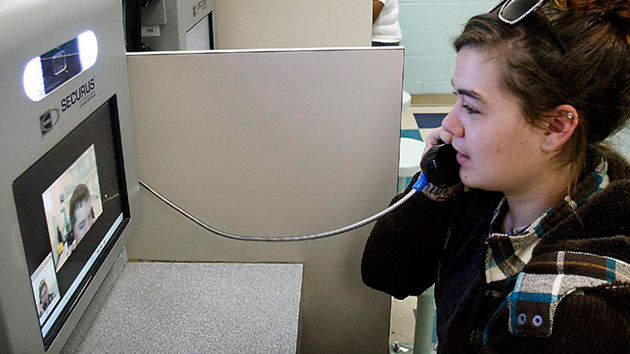
Julie Jacobson, File/AP
Connecticut’s state Senate voted Thursday to enact first-in-the-nation legislation that would make it free for incarcerated people to place phone calls. If the bill passes in the House and is signed into law by the governor, it’ll be a historic win for inmates’ rights.
Phone calls are a crucial way for incarcerated people to reach legal help or their families, but costs can be prohibitive—even for pretrial inmates who haven’t been convicted of any crimes. According to the Prison Policy Initiative, a 15-minute in-state phone call in Connecticut cost $3.65 in 2019, which is more expensive than any state besides Arkansas. New York City made calls from jails free in 2018, but Connecticut could be the first to enact similar legislation statewide.
The bill would also prevent in-person prison visits from being replaced by video calls. As my colleague Tim Murphy reported in 2015, companies that run video visitation programs have been squeezing money from inmates, at the additional expense of face-to-face interaction with their loved ones. Tim laid out the details of a contract between the sheriff of Maricopa County, Arizona and visitation app company Securus:
A 20-minute online video chat with a Maricopa County inmate costs $5. That’s the promotional rate; it then goes up to $12.95. The company is covering the $2.3 million cost of installing the on-site video in return for receiving all the profits from remote visitation until it hits 8,000 monthly paid visits—or roughly one per inmate. After that, the sheriff’s office will take a cut of the fees—another big selling point for cash-strapped cities and counties. Jails usually get somewhere between 10 and 30 percent of the profits from remote video visits after hitting certain traffic benchmarks.
The bill is likely to pass in Connecticut’s Democratic-controlled state House, but it’s unclear whether Democratic Gov. Ned Lamont, who stonewalled similar legislation under pressure from lobbyists in 2019, would sign the bill into law.


















